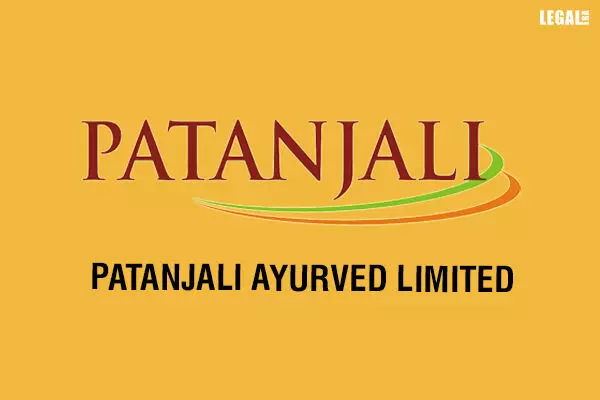- Home
- News
- Articles+
- Aerospace
- Artificial Intelligence
- Agriculture
- Alternate Dispute Resolution
- Arbitration & Mediation
- Banking and Finance
- Bankruptcy
- Book Review
- Bribery & Corruption
- Commercial Litigation
- Competition Law
- Conference Reports
- Consumer Products
- Contract
- Corporate Governance
- Corporate Law
- Covid-19
- Cryptocurrency
- Cybersecurity
- Data Protection
- Defence
- Digital Economy
- E-commerce
- Employment Law
- Energy and Natural Resources
- Entertainment and Sports Law
- Environmental Law
- Environmental, Social, and Governance
- Foreign Direct Investment
- Food and Beverage
- Gaming
- Health Care
- IBC Diaries
- In Focus
- Inclusion & Diversity
- Insurance Law
- Intellectual Property
- International Law
- IP & Tech Era
- Know the Law
- Labour Laws
- Law & Policy and Regulation
- Litigation
- Litigation Funding
- Manufacturing
- Mergers & Acquisitions
- NFTs
- Privacy
- Private Equity
- Project Finance
- Real Estate
- Risk and Compliance
- Student Corner
- Take On Board
- Tax
- Technology Media and Telecom
- Tributes
- Viewpoint
- Zoom In
- Law Firms
- In-House
- Rankings
- E-Magazine
- Legal Era TV
- Events
- Middle East
- Africa
- News
- Articles
- Aerospace
- Artificial Intelligence
- Agriculture
- Alternate Dispute Resolution
- Arbitration & Mediation
- Banking and Finance
- Bankruptcy
- Book Review
- Bribery & Corruption
- Commercial Litigation
- Competition Law
- Conference Reports
- Consumer Products
- Contract
- Corporate Governance
- Corporate Law
- Covid-19
- Cryptocurrency
- Cybersecurity
- Data Protection
- Defence
- Digital Economy
- E-commerce
- Employment Law
- Energy and Natural Resources
- Entertainment and Sports Law
- Environmental Law
- Environmental, Social, and Governance
- Foreign Direct Investment
- Food and Beverage
- Gaming
- Health Care
- IBC Diaries
- In Focus
- Inclusion & Diversity
- Insurance Law
- Intellectual Property
- International Law
- IP & Tech Era
- Know the Law
- Labour Laws
- Law & Policy and Regulation
- Litigation
- Litigation Funding
- Manufacturing
- Mergers & Acquisitions
- NFTs
- Privacy
- Private Equity
- Project Finance
- Real Estate
- Risk and Compliance
- Student Corner
- Take On Board
- Tax
- Technology Media and Telecom
- Tributes
- Viewpoint
- Zoom In
- Law Firms
- In-House
- Rankings
- E-Magazine
- Legal Era TV
- Events
- Middle East
- Africa
Supreme Court orders Patanjali Ayurved to stop misleading ads falsely claiming cures for diseases

Supreme Court orders Patanjali Ayurved to stop misleading ads falsely claiming cures for diseases
Warns of imposing Rs.1 crore cost on every such product
The Supreme Court has reprimanded Patanjali Ayurved for continuing to publish misleading claims and advertisements against modern systems of medicine.
While considering a petition filed by the Indian Medical Association (IMA) against misleading ads, the bench comprising Justice Ahsanuddin Amanullah and Justice Prashant Kumar Mishra issued a stern warning to the company co-founded by Baba Ramdev.
Justice Amanullah said, “All such false and misleading advertisements of Patanjali Ayurved must stop immediately. The Court will take any such infraction very seriously and will also consider imposing costs to the extent of Rs.1 crore on every product regarding which a false claim is made that it can ‘cure’ a particular disease.”
Consequently, the counsel for Patanjali assured against publishing any such advertisements in the future. He also stated ensuring that no casual statements would be made by the firm in the media.
The bench clarified that it did not wish to make the issue an ‘Allopathy vs Ayurveda’ debate but wanted to find a real solution to the problem of misleading medical advertisements.
The bench told Additional Solicitor General of India KM Nataraj that the Central government would have to find a viable solution to tackle the problem. The government was asked to come up with suitable recommendations.
Last year, the Court had pulled up Baba Ramdev for making statements against modern medicine systems like allopathy while issuing a notice on the petition filed by the IMA.
The then Chief Justice of India NV Ramana had at that time observed, "What’s happened to Baba Ramdev? He can popularize his system, but why should he criticize other systems? We all respect him; he popularized yoga. But he shouldn't criticize other systems. What is the guarantee that his system will work? He cannot refuse the doctor system. He must exercise restraint in abusing other systems.”
The IMA’s writ petition raised concerns over the "continuous, systematic, and unabated spread of misinformation" regarding allopathy and the modern system of medicine. The petition asserted that Patanjali’s misleading ads disparaged allopathy and made false claims about curing certain diseases.
The plea referred to a half-page advertisement published on 10 July 2022, titled, ‘Misconceptions spread by allopathy: Save yourself and the country from the misconceptions spread by pharma and medical industry’.
The Association contended that while every commercial entity had the right to promote its products, the unverified claims made by Patanjali violated the laws including the Drugs & Other Magic Remedies Act, 1954, and the Consumer Protection Act, 2019.
It highlighted instances where Baba Ramdev made controversial statements, including calling allopathy a ‘stupid and bankrupt science’. He made unfounded claims about the deaths of people due to allopathic medicines during the second wave of the Covid-19 pandemic.
The IMA accused Patanjali of spreading false rumors about Covid-19 vaccines and contributing to vaccine hesitancy. The petition also cited Swami Ramdev's alleged mockery and derision of citizens searching for oxygen cylinders during the pandemic’s second wave.
The Association emphasized that despite the Ministry of Ayush signing a Memorandum of Understanding (MoU) with the Advertising Standards Council of India (ASCI) for monitoring the misleading ads of Ayush drugs, Patanjali, with impunity, continued its alleged disregard for the law.
The matter will be heard on 5 February 2024.



